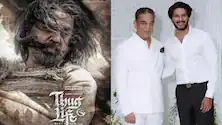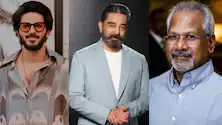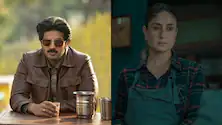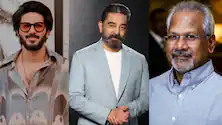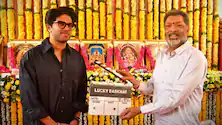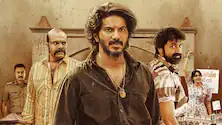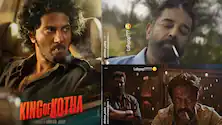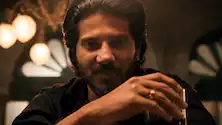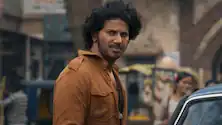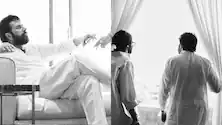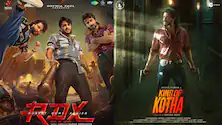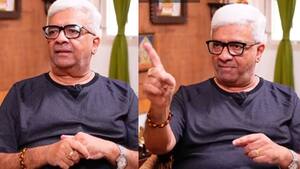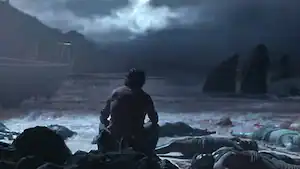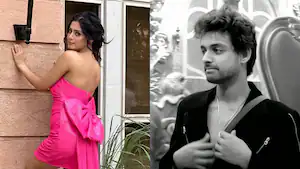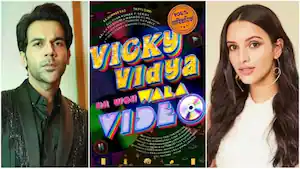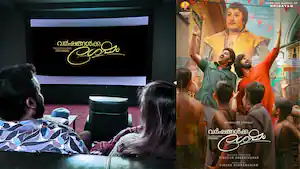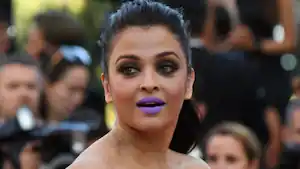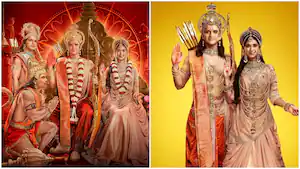Interview: Dulquer Salmaan: I Don't Think My Father Will Ever Act With Me In A Film
In an interview with Filmibeat, Dulquer Salmaan gets candid about his conscious decision of staying away from typical 'hero' films, his Bollywood career and much more.
With his enticing personality and an endearing smile, Dulquer Salmaan is a charmer right from the word 'go'. Unlike most actors, the handsome hunk chose a rather unconventional route by making his Bollywood debut with 'Karwaan' which released last year. The film earned him rave reviews and many fans too, in the Hindi film industry. His second film, 'The Zoya Factor' opposite Sonam Kapoor, is up for release this week. This time, there's a little flamboyishness to him on the big screen.
In an interview with FilmiBeat, the heartthrob gets candid about his conscious decision of staying away from typical 'hero' films, his Bollywood career, why he is yet to work with his superstar father and the much dreaded 'N' word.
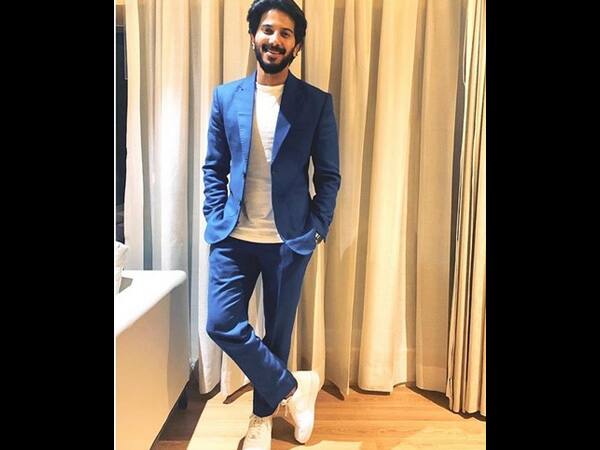
'I Don't Want To Get Slotted In Any Box'
Q. You started your career in Bollywood with 'Karwaan' and now, 'The Zoya Factor' is your second release. Is it a conscious decision to take up something different unlike a typical 'hero' film?
A. Yes. That's how I have always seen films in totality. I believe the film is the hero. There has to be a protagonist, and the story has to be around this person and it has to have a character that I want to play. It should be interesting and challenge me as an actor. I want to find interesting content and want each of my films to be different than the last. I don't want to end up feeling monotonous. I don't want people to say, 'Oh, it's his comfort zone'.
When I started in Malayalam cinema, my first four-five films always had me in urban roles. So, people thought I could play only those roles. I want to break out of that.
So now, when I take up films in a new industry in Tamil, Telugu and Hindi, I feel like I don't want to get slotted into any box. Hopefully, I want each of my films and characters to be different. That's also what excites me.
Q. How comfortable are you now in the Hindi film industry? Do you feel accepted here?
A. I don't think too much about acceptance. I believe if the film is good, people will watch it. 'Karwaan' had Irrfan Khan in it. I don't know if I will do a film with just me and a newcomer because then, it's not really fair for me to do that at this time of my career. 'The Zoya Factor' has Sonam Kapoor. Then, I can play my part and be in a film that people would watch. (laughs)
If I were to debut again now completely where you have to pitch me to an audience that's a different kind of sell, I don't know how I would do that after 27 films. I like it if a film has a good production house, some known actors who are familiar to the audience. That helps better.
Q. But down South, there were so many films where you worked with a newcomer...
A. Yes, because that's my core market. I have worked over time to build that base. So now, I can take those risks. If people know that I do a certain quality of films, they will still at least come and give my film a chance. Whether it works or not, that's a different thing. Here, there's a large percentage of the audience that doesn't know me or my work.

'It Will Be Unfair For Me To Call Myself A Struggling Actor In Bollywood'
Q. Obviously we can't take away the fact that you worked really hard to build an audience and your films are loved by them, but would you say that your work in Bollywood will reflect the struggle which you have had in Malayalam cinema, were you not superstar Mammootty's son?
A. I don't know. Even now when the media write my stories, somewhere that mention will be there. Audience who have followed regional cinema will know that connect. But that's something which I cannot run away or escape from. It will be very unfair on my part to say that, 'I am a struggling actor here'. Because there are so many genuinely struggling actors who audition. I am quite blessed to get offers and I choose from them. I don't think I can say that my journey here (Bollywood) is different and I am going to be treated like someone who has no film background. I am 27 films old.
Q. You have played varied roles and dabbled with cinema belonging to different languages in your career. What excites you most about acting apart from the fact that you get to live different lives on the big screen?
A. The best part is discovering different parts of our country and the world, different cultures and learning different languages. That excites me. I like languages. So for somebody like me, it is the most rewarding thing. You express differently in different languages. I always say, you can't express love so beautifully in Malayalam. They don't have a lot of words for love unlike Tamil or Hindi. 'I love you' can be said in so many ways in Hindi or Tamil. When I do films in different languages, I get to explore these things and play and express them differently.
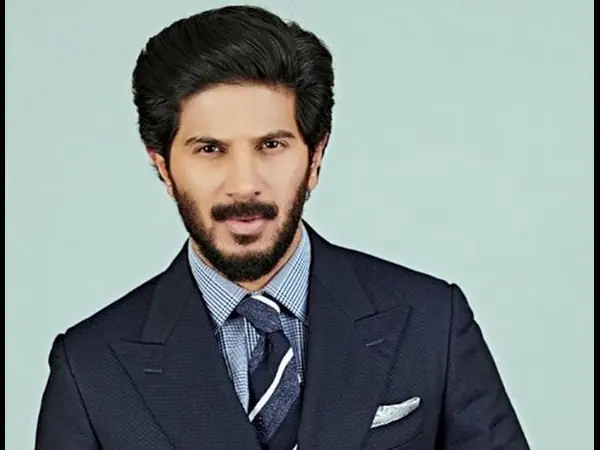
'I Think Rajinikanth & Salman Khan Can Do Anything'
Q. When we look at your work in Malayalam cinema, you have always played simple, relatable characters in your films. Despite that how do you succeed in making each of your roles different from the other?
A. Even in my personal film viewing habits or books that I read, I really like a slice-of-life. I want it to be as real as possible and believable. I want to be so invested in the film that I feel like I am watching someone's lives.
I do get offered very commercial, mainstream cinema and I always try to find logic in it (laughs). I take up a role only if I believe in it and think I can play it convincingly. I have amazing respect for all of our superstars who have so much conviction that they can do these amazing things on screen.
I am that member of the audience who is a huge fan and hoots and screams while watching a film. I think Rajinikanth or Salman Khan can do anything and I believe it because they believe in it.
Now, I don't think I can do that on screen. So, I take up films that I believe in and connect to. Good writers and directors have a way of making these characters unique by giving it a backstory.
Q. There was a time when Malayalam cinema was at its peak in the 90s. Suddenly there was a downfall. But things have changed again with you and some other actors coming into the picture and the gap. What's your take on it?
A. I think we are just lucky. The audiences have changed. The 80s and early 90s was a golden era for Malayalam cinema. Directors like Padmarajan, Bharadan made amazing cinema and people had an appetite for that. I am guessing once it moved on to other filmmakers, we lost our way by doing stuff which other industries were doing. But now, we have come back to what we do. I was lucky to have entered at that amazing time. You have young filmmakers telling real stories about real people. Me, Fahadh Faasil and others entered the industry at the right timing.
Earlier, you had to assist a filmmaker for 10 years and spend five years convincingly as an actor to get your first film made. But now, you can make films on YouTube and get noticed.
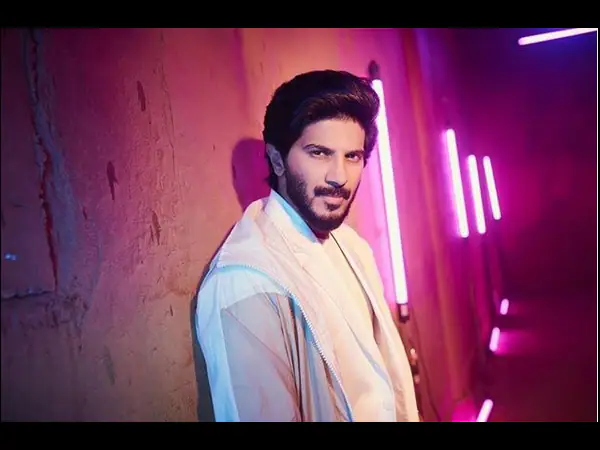
'I Am A Lot More Paranoid'
Q. Have there ever been times when your father suggested you to take up commercial films along with the path-breaking cinema that you take up, like how he has balanced it?
A. I feel we are two different kinds of actors. He has done almost 400 films. The kind of stuff he does and the risks he takes are definitely higher than mine. I think that security has come with many years of taking risks and experiencing highs and lows.
On the other hand, I am a lot more paranoid and feel every film of mine has to be amazing. I try to find great content and then make it as commercial as possible. When I heard 'Charlie', I thought of it as a very indie film. A lot of directors came on board but we just couldn't find the right guy. Finally, Martin came on board and it was he who added a lot of colour to the film.
You can give me content and we will pitch it as big as we can. I don't know how to work this backwards. I can't take up a full commercial film and then add art to it. Having said that, if a great commercial film comes my way, and it's strong on content, I will do it.
I don't think my father will ever act with me (laughs). He says it's nice that we have different identities.
I genuinely believe there's a percentage of people who have seen my films and haven't known that I am his son. Maybe not in Kerala but other parts of India. They are not even immediately connecting back to my dad. I don't even have his name in my surname. He doesn't even come with me to events (laughs).
Q. You said that you want all your films to be amazing. But what if they don't turn out to be as expected? How do you deal with that?
A. If I know that my intentions were right, and I tried my best, I make peace with it. If I feel like I am doing a film for the wrong reasons maybe because I want to work with the director despite the mediocre script or I need the money, then I will be scared. So when the film comes out, I wouldn't know if it has substance and then if it fails, I will feel blamed.
But if I am backing something which has substance, and it fails, I am okay with it. You can never predict what an audience will like. You can't read them and make movies for them. You have to surprise them.
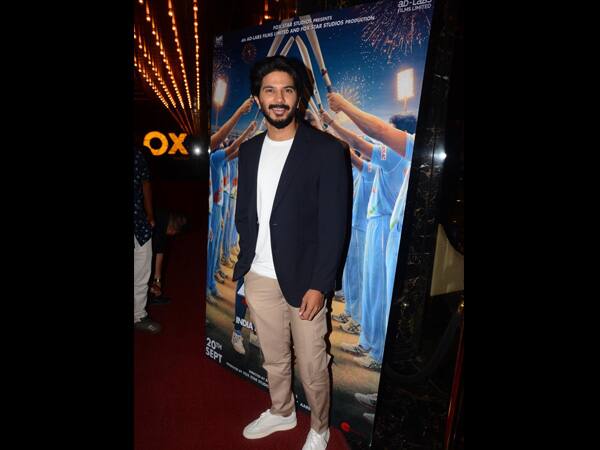
'I Find It Hard To Say 'No' To A Film'
Q. Will you ever do a film because you want to work with a certain director despite the script being not up to mark or for money?
A. (laughs) My biggest fights in life have been where I have said 'No' to a film. I find that the hard part. There can be mainstream, senior directors and you don't like that idea. It might work but they might not be my kind of films.
Q. In a recent interview, Nithya Menen said that a lot of people down South thought of her as 'arrogant' because she refused big film offers. So, when you turn down a big-budget film, do you fear being judged?
A. (laughs) No, I mean I am very polite about it. I think with time, you have to earn that respect. Once you have a body of work, I think then they will be okay with your refusal. Usually, I am like, 'Sir, it's a nice idea but I don't think I am the right guy for it'. Sometimes they get disappointed or angry. But for the most part, hopefully, if my choices have been right and my movies are working, maybe they will come back to me.
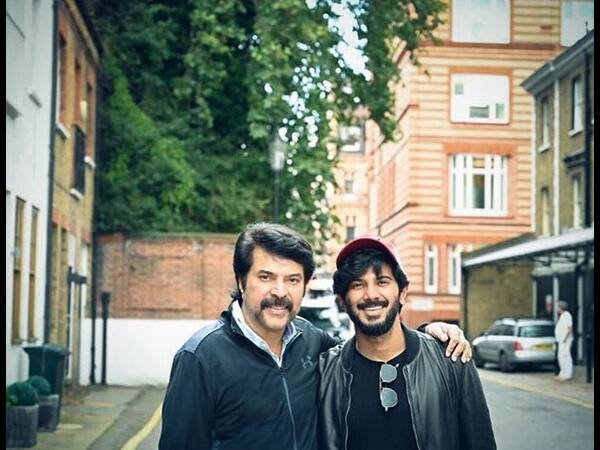
'I Am Not Guaranteed Anything In Malayalam Industry As A Star Kid'
Q. How secure are you as an actor? Do you check what your contemporaries are doing and their choice of films?
A. When I first started off as an actor, I was more insecure because I didn't know if I will last. The media is always pitching you against some actor or the other.
When somebody is doing well in this year, everybody is compared to that actor. Next year, you will be compared to some other actor who is doing well. It is very easy for you to look at what others are doing and stress and lose sleep. But, no two actors will have the same journey. It's a fact.
It is unfair for us, even as actors, to compare ourselves with others. With time, I think I found a lot of peace in that.
Q. What about your journey in Hindi cinema? How secure are you here?
A. I am not worried in that sense. I just want to try and do good cinema. So if I do a Hindi film, it should be different from my first two. I will be very happy if the audience thinks of me as someone doing different kind of films. I am not going to worry about other factors like longevity and others because I do have a base and will have my focus there. But ideally, once a year, I want to take up a Hindi or a Tamil film because I love languages.
Q. In Bollywood, one of the most combustible topic which refuses to be doused is nepotism. Have you ever borne the brunt of being a star kid and somehow got that nepotism debate there? If not, then what's the difference there?
A. Maybe, it wasn't called nepotism in those days. But there always have been haters and people who have been trying to pull me down right from my first film, in terms of some guy trolling on the internet or some reviewer who doesn't like my work. It's like if you don't like my work, the easiest thing is to blame it on nepotism. But I think over a period of time, with my choices and the risks which I take, people know that I am quite serious about my work. I am not here because my parents are pushing me to work. I genuinely love cinema and want to be a part of good films. I want to put all the efforts as an actor to do good stuff. In fact, it's a lot less now. We don't have a lot of second-generation actors in Malayalam cinema. I don't think my first film opened like my father's. It doesn't work like that. Everybody was like, 'Who's this kid?' I don't think I am guaranteed anything in Malayalam industry as a star kid.





 Click it and Unblock the Notifications
Click it and Unblock the Notifications




